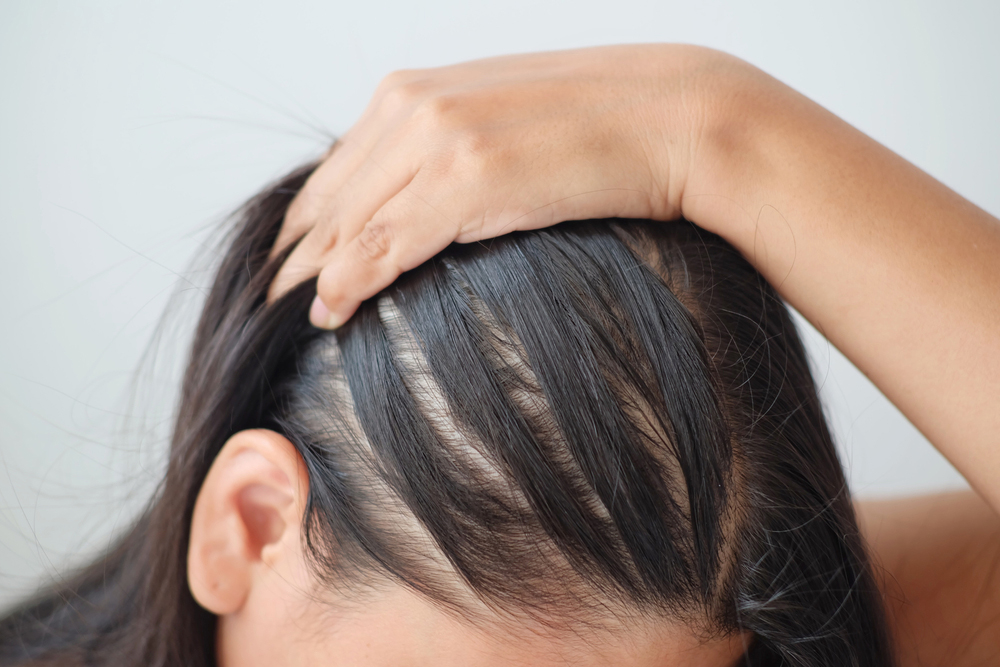Your hair is an integral part of your identity and self-esteem. When you start noticing hair loss, it can change the way you feel about yourself. Many factors can cause balding and thinning, including stress. With a condition known as telogen effluvium, significant stress causes hair follicles to enter a resting phase. Within a few months, you can experience dramatic shedding when combing or washing your hair.
Fortunately, telogen effluvium is reversible, since this type of stress-related hair loss does not cause permanent follicle damage. Here are some steps you can take to improve this condition.
1. Eat a Balanced Diet
Nutrition is essential for overall health and wellness, including hair growth. Deficiencies in nutrients such as zinc and B vitamins can contribute to hair loss from stress. To combat this problem, eat plenty of fresh produce, whole grains and lean proteins. Avoid overly processed, prepackaged foods, which tend to be high in sodium, sugar and additives.
If you aren’t getting enough of these vital nutrients in your diet, talk to your doctor about taking supplements. They can discuss your options, recommend the best dosage and ensure there are no adverse interactions with other medications you might be taking.
2. Use Stress-Management Techniques
If you don’t find a healthy outlet for coping with your stress, your hair loss could worsen. Stress-management techniques include:
- Yoga
- Meditation and mindfulness
- Breathing exercises
- Journaling
- Volunteer work
- Outdoor activities, such as gardening and hiking
3. Exercise
Adding more physical activity to your life can have multiple benefits, including stress relief. Exercising releases endorphins in your brain, which are the chemicals responsible for creating the well-known “runner’s high.” Even if you aren’t athletic, you can find ways to work exercise into your daily routine. Try parking farther away from the grocery store, using the stairs instead of the elevator or taking walks around your neighborhood.
4. Improve Your Sleep Hygiene
Stress can disrupt your sleep cycle by causing you to have upsetting nightmares or wake up several times a night. Insomnia and other sleep disorders could further wreak havoc on your body’s hormonal balance, which is already out of sync due to chronic stress. Strive to get seven to nine hours of restful sleep every night. Improve your sleep hygiene by going to bed and waking up at consistent times, sleeping in a cool, dark room and keeping electronics out of your bedroom.
5. Work With a Therapist
Stress-related hair loss can be alarming, and is one of the ways your body tells you to seek help. A trained therapist serves as a neutral, non-judgmental person you can talk to about your feelings and experiences. In counseling, you can learn healthy ways to cope with your problems and understand how to improve your relationships with other people. Therapists use various evidence-based approaches to help their clients examine their thoughts, beliefs and values.
Personalized Addiction Treatment
Trying to manage chronic, severe stress with drugs and alcohol will ultimately worsen your mental health and lead to substance use problems. While nobody starts drinking or taking drugs in hopes of developing an addiction, chemical dependency is a disease that can happen to anyone. In an accredited treatment program, you can learn healthier ways to handle stress and break the cycle of substance abuse.
At Hemet Valley Recovery Center & Sage Retreat, we provide hospital-caliber medical care in a comfortable, home-like setting. Here, you can get all the care you need on your recovery journey under one roof. Contact us to learn more about getting a customized plan for improving your health and well-being.


